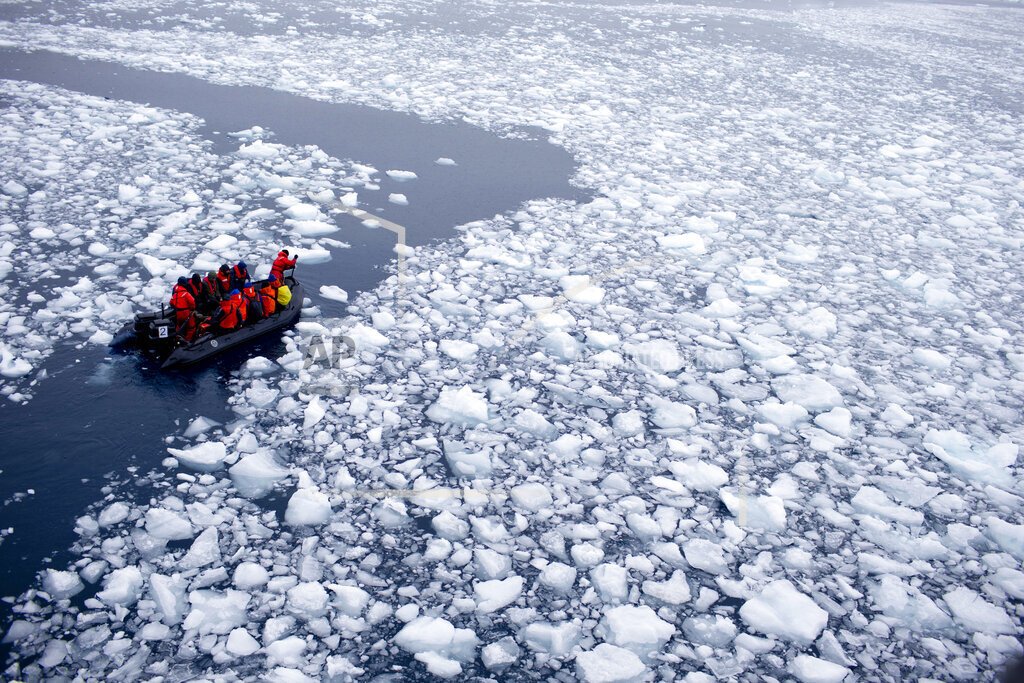The Collapse of Antarctic Currents and What This Means for Our Climate’s Future
Glacial melting near Antarctica. Source: AP Newsroom/Natacha Pisarenko
Scientists in Australia are predicting deep water flows that drive ocean currents to decline by 40% by 2050, creating major changes in the future of the earth’s climate. Deep ocean currents have remained largely stagnant for the past thousands of years, however, climate change is believed to be driving these Antarctic currents to a collapse if emission levels persist. The overturning of the ocean, where cold water runoff from glaciers sinks 4,000 meters below the surface, is responsible for carrying nutrients, heat, carbon, and oxygen all around the world, and regulating climate and sea levels. The collapse of our ocean systems has the potential to trap nutrients in the deep ocean, heavily affecting marine ecosystems.
Beyond altering these ecosystems, the slowing of ocean currents could open up a feedback loop: increased levels of melting ice leading to even more warm water and an even greater slowdown of the currents. As the planet warms, the Antarctic and Greenland ice sheets are projected to melt at accelerating rates, making the ocean water surrounding Antarctica less dense, slowing oceanic circulation. Studies show that this warming is already occurring, and continued unmitigated climate change has the potential to significantly alter ocean systems for the upcoming centuries.
Models reveal that this slowing may already be occurring, though scientists believe that reducing carbon emissions may delay or slow a total collapse of ocean systems. In addition to the Antarctic currents, scientists believe that a more shallow ocean circulation in the Atlantic Ocean, known as the Atlantic Meridional Overturning Circulation, may also be slowing down. Beyond the ocean, slowing currents are also projected to drastically impact the future of our climate. Critical jetstreams responsible for warming Europe will be affected by this slowdown in circulation, and as overturning slows, Europe could get cooler.
Ice melting in the South Shetland Islands. Source: AP Newsroom/Natacha Pisarenko
This prediction of the slowdown of deep ocean currents is also indicative of the progress of climate projection modeling, as previous models were unable to estimate “Antarctic Bottom Water” changes. Past climate change modeling has failed to accurately account for the impact of meltwater on ocean circulation and often does not incorporate ice sheet submodels.
Prior climate models have been starkly criticized for drastically underestimating how fast the Arctic is warming, and in turn, underestimating how severe the consequences will be. This new modeling allows for more accurate, and more realistic modeling of how glacial melting will affect ocean systems and climate.
Despite new modeling techniques, concern regarding an ocean current collapse has been growing. In 2021, scientists warned of the collapse of the Gulf Stream, which would have devastating consequences including increasing storms, rising sea levels, endangering the Amazon rainforest, and severely altering precipitation patterns billions depend on for food. This new projection provides a clearer picture of how soon ocean systems may collapse, though this warning about the tipping point for the earth’s climate is not new.


